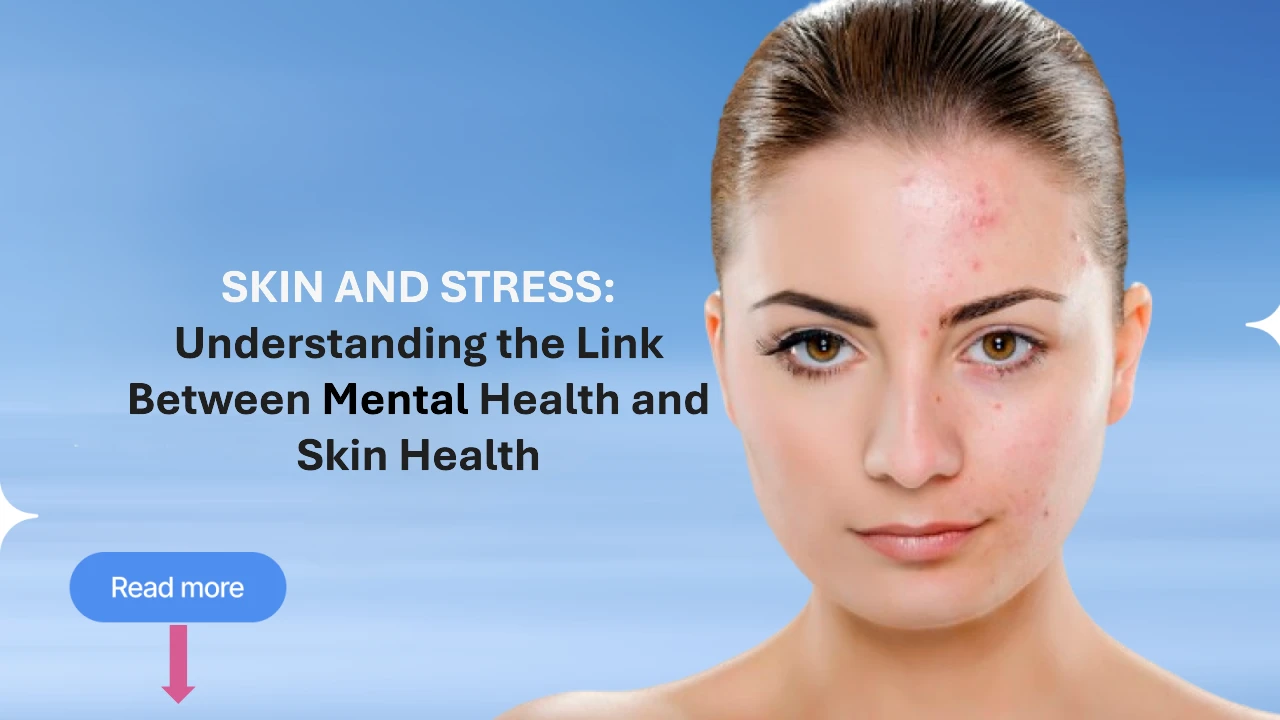Skin and Stress: Understanding the Link Between Mental Health and Skin Health
The Link Between Skin Health and Mental Health: Understanding the Mind-Skin Connection
The relationship between skin health and mental health is deeper than many realize. Skin is not only the body’s largest organ but also one of the most sensitive to emotional and psychological changes. Stress, anxiety, depression, and other mental health issues can affect skin conditions—and, conversely, skin issues can significantly impact mental well-being. This two-way relationship is often referred to as the mind-skin connection.
How Mental Health Affects Skin
Our emotional state can trigger a cascade of hormonal and inflammatory responses in the body. When we’re stressed or anxious, the body releases stress hormones like cortisol and adrenaline. These hormones can increase oil production, weaken the skin barrier, and lead to inflammation—all of which can cause or worsen skin issues such as:
-
Acne: Stress-induced oil production can clog pores and lead to breakouts.
-
Eczema & Psoriasis: These inflammatory skin conditions are known to flare up during periods of emotional stress.
-
Rosacea: Stress can dilate blood vessels and trigger flare-ups.
-
Hives or Itching: Anxiety can activate the immune system, causing itchiness or allergic skin reactions.
Sleep disturbances, often associated with poor mental health, can also slow down skin regeneration, leading to dullness, dark circles, and a more tired appearance.
How Skin Health Affects Mental Health
Living with visible skin conditions can take a heavy emotional toll. Studies have shown that people with chronic skin conditions are more likely to experience feelings of embarrassment, low self-esteem, social withdrawal, and even clinical anxiety or depression.
For example:
-
Teenagers with acne may struggle with bullying or self-image issues.
-
Adults with visible skin diseases might avoid social events or relationships.
-
Persistent skin problems can lead to emotional exhaustion, creating a cycle of stress and worsening symptoms.
The psychological distress caused by skin problems isn’t just cosmetic—it’s deeply rooted in our identity, confidence, and social interaction.
Breaking the Cycle
Because of this mind-skin connection, addressing both physical and emotional health is essential. Here’s how to support both:
-
Stress Management: Practicing mindfulness, meditation, yoga, or journaling can reduce stress levels and may improve inflammatory skin conditions.
-
Regular Skincare Routine: Gentle, consistent skincare can help manage symptoms and give a sense of control and self-care.
-
Professional Help: Dermatologists and therapists can work together to provide a holistic approach. Psychodermatology, a growing field, specifically focuses on the interaction between skin and mental health.
-
Sleep and Nutrition: Both play key roles in maintaining hormonal balance and reducing inflammation.
-
Self-Compassion: Being kind to yourself and reframing negative self-talk can improve your relationship with your skin and your mental state.
Conclusion
Your skin and your mind are in constant communication. When one suffers, the other often does too. By nurturing both with care, mindfulness, and appropriate treatment, you can foster a healthier, more balanced connection between your emotional well-being and your skin. This holistic approach is key to feeling good—inside and out.

Related Blog
What Causes Oily Skin and Can It Be Managed Naturally? Exploring Root Causes and Gentle Solutions
Aug 2, 2025 by Admin
General
What Are the Signs That You Have Sensitive Skin? Key Symptoms to Help You Identify This Delicate Skin Type
Aug 1, 2025 by Admin
General